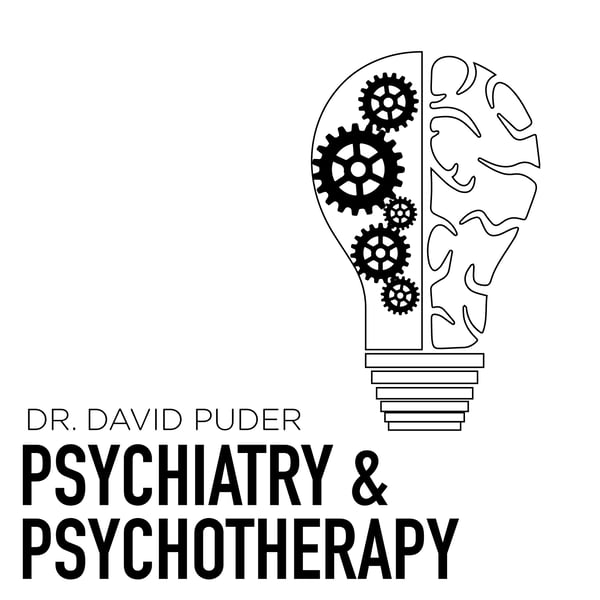Therapeutic Alliance Part 1
Psychiatry & Psychotherapy Podcast
David J Puder
4.8 • 1.3K Ratings
🗓️ 6 September 2018
⏱️ 46 minutes
🧾️ Download transcript
Summary
What is a therapeutic alliance?
The therapeutic alliance is a collaborative relationship between the physician and the patient. Together, you jointly establish goals, desires, and expectations of your working partnership.
Every interview with a patient, whether it’s for diagnostic, intake, evaluative, or psychopharmacology purposes, has therapeutic potential. The treatment starts from your first greeting—how you listen, empathize, and even how you say goodbye.
It’s built from a partnership and dialogue, like any other relationship. It’s not built from medical interrogation. It’s not about pulling medical information to be able to make a diagnosis. We have to make it a positive experience for patient, so they can begin to talk about what's negative in their lives.
The therapeutic alliance is full of meaning, and it uses every emotional transaction therapeutically. If they get angry, sad, or have fear you will abandon them, as a therapist, it’s our job to figure out how to help them through that feeling within the relationship. The doctor can express desire for the patient to share, in real time, how the patient is feeling, even about his or her relationship with the doctor.
Why do we care?
We all know that some talk therapists have better outcomes than other talk therapists. What’s interesting though, is that some some psychiatrists’ placebos worked better than other psychiatrists’ active drugs. One study of NIMH data of 112 depressed patients treated by 9 psychiatrists with placebo or imipramine, found that variance in BDI score (a score that measures depression) due to medication, was 3.4% and variance due to psychiatrist was 9.1%. One-third of psychiatrists had better outcomes with the placebo than one-third had with imipramine.
Another book argues that the therapist is more important to outcome than theory or technique. Many other studies have shown that therapeutic alliance directly correlates to success rates.
For the rest of the blog/article go here
Join and discuss this episode with David on Instagram: dr.davidpuder
Twitter: @DavidPuder
Facebook: DrDavidPuder
Transcript
Click on a timestamp to play from that location
| 0:00.0 | Welcome to the Psychiatry and Psychotherapy Podcast. The podcast to help you in your journey |
| 0:06.0 | towards becoming a wise, empathic, genuine and connected mental health professional. |
| 0:11.0 | I'm your host, Dr. David Puder, a psychiatrist who splits his time practicing psychopharmacology, |
| 0:17.0 | individual and group psychotherapy, medical director of a day treatment program, |
| 0:21.0 | medical education research, and teaching residents and medical students. |
| 0:30.0 | Welcome back to the podcast, this is your host, Dr. Puder. Today I'm alone, |
| 0:38.0 | and I am going to be going through the therapeutic alliance part one. |
| 0:43.0 | This is kind of an introduction to the idea of therapeutic alliance. |
| 0:48.0 | It's going to be fairly practical, but also talk about some of the ideas behind it, |
| 0:54.0 | the science behind it, and why it's important. |
| 0:57.0 | Why I think it's something I focus on in my own practice as a constant reminder |
| 1:05.0 | that I need to remind myself to do, you know, even into practice now four years, |
| 1:10.0 | I am constantly needing to remind myself of, you know, be empathic, connect with the patient, |
| 1:20.0 | get outside of my own head and get into the patient's head. |
| 1:23.0 | What are the patient's goals? How do I realign to those things? |
| 1:27.0 | How do I connect with the patient? And out of that bond, that forms, you know, |
| 1:32.0 | you have better outcomes. That's what the data shows. So big ideas is going to be |
| 1:40.0 | how to form a therapeutic alliance, and in this series, and it may be spread out, you know, |
| 1:49.0 | so in like maybe in a month or two, I'll do part two, but there is a series I will take you through |
| 1:55.0 | regarding the therapeutic alliance. This lecture was formed out of a lot of |
| 2:04.0 | sort of time being mentored by Dr. Tar, but Dr. John Tar. |
| 2:12.0 | A 90-year-old psychoanalyst out in Pasadena who has a huge commitment towards education |
... |
Please login to see the full transcript.
Disclaimer: The podcast and artwork embedded on this page are from David J Puder, and are the property of its owner and not affiliated with or endorsed by Tapesearch.
Generated transcripts are the property of David J Puder and are distributed freely under the Fair Use doctrine. Transcripts generated by Tapesearch are not guaranteed to be accurate.
Copyright © Tapesearch 2025.

